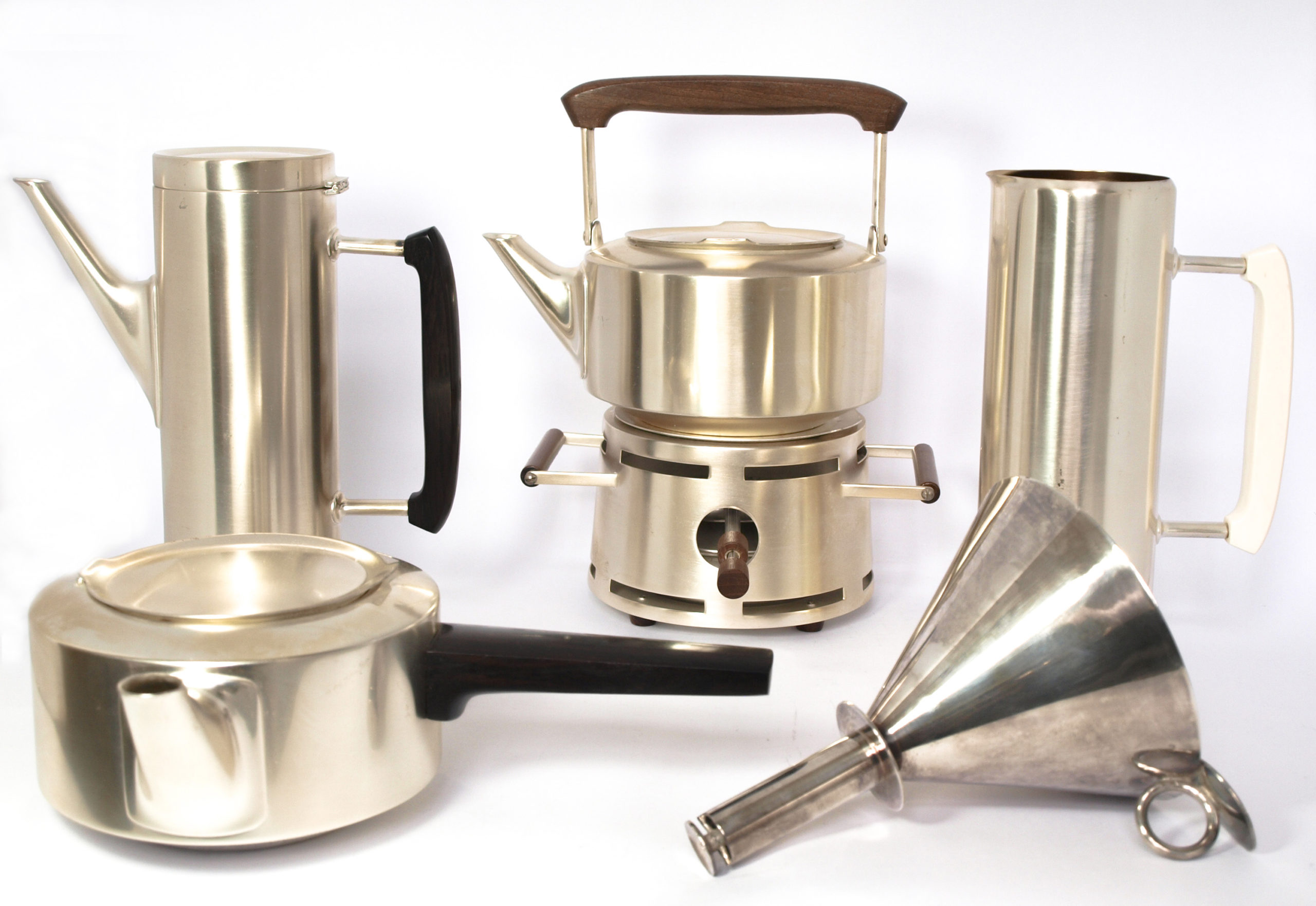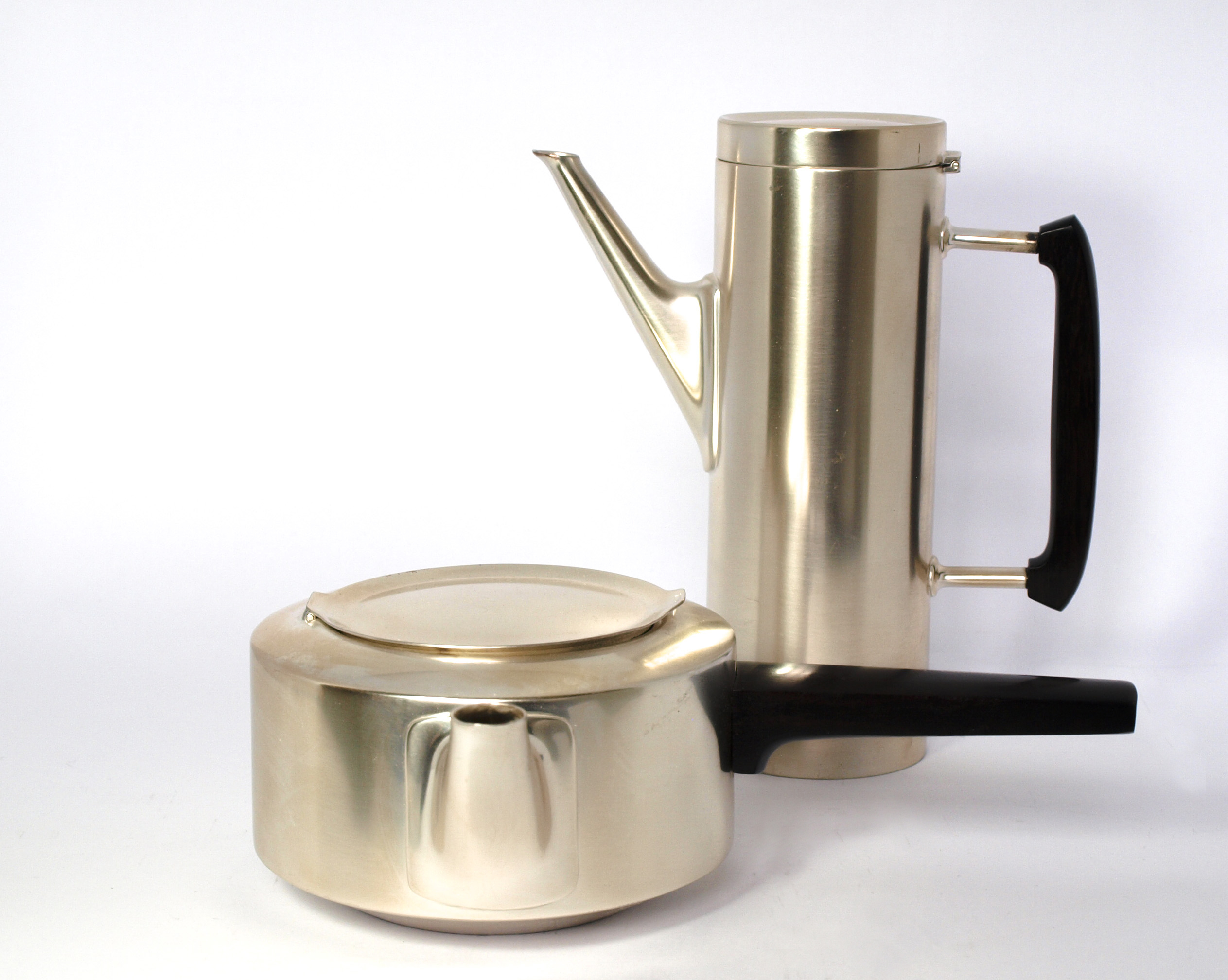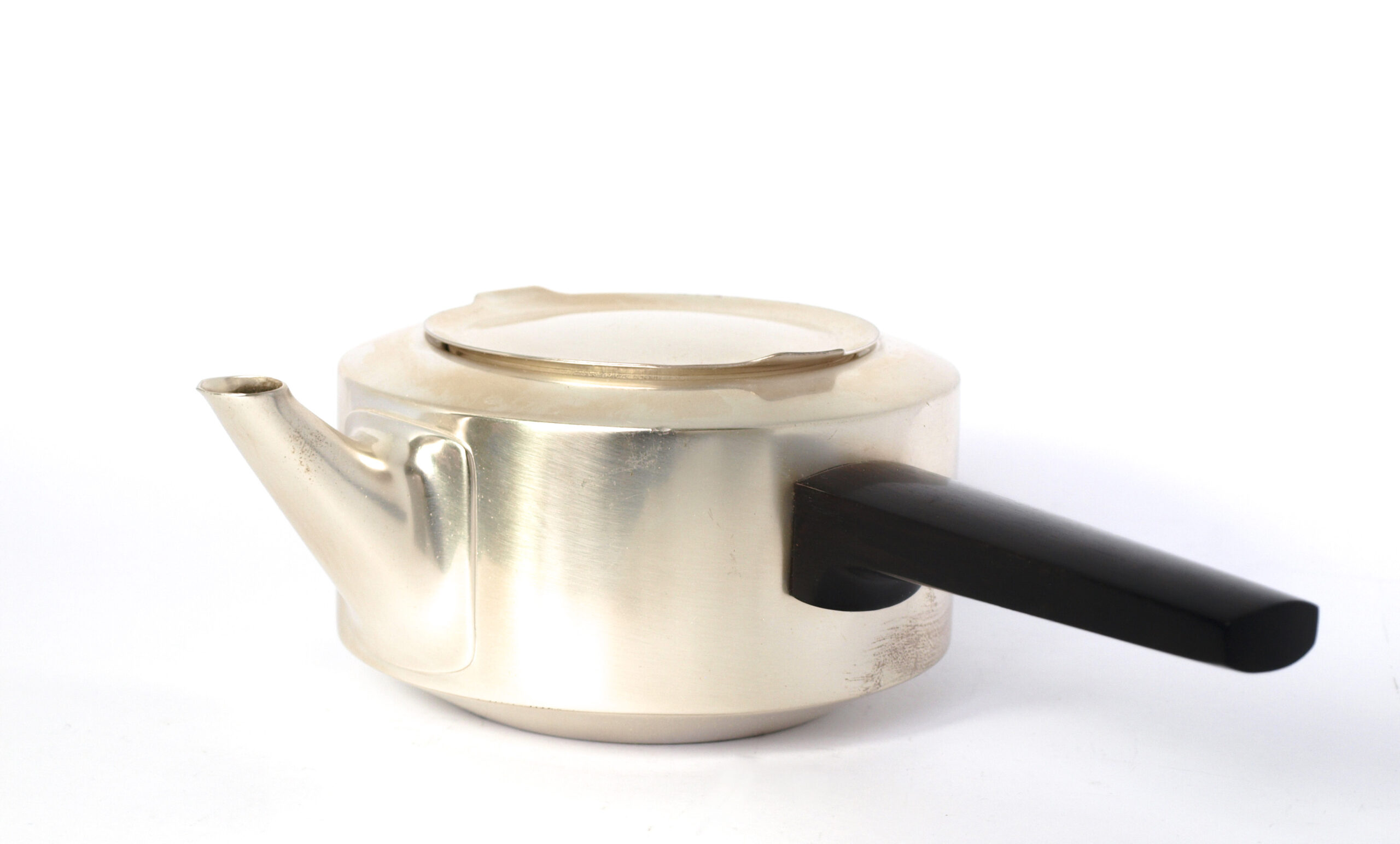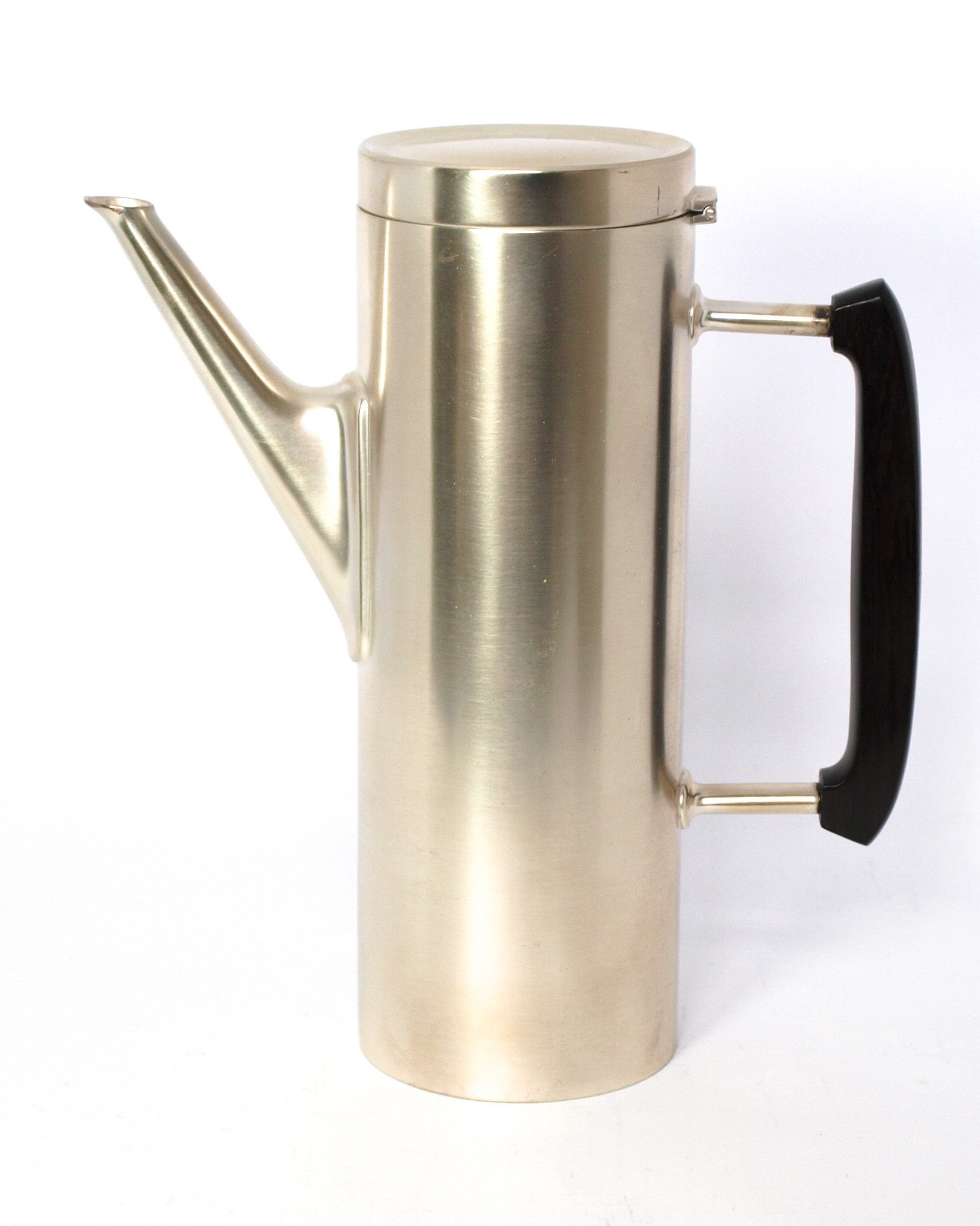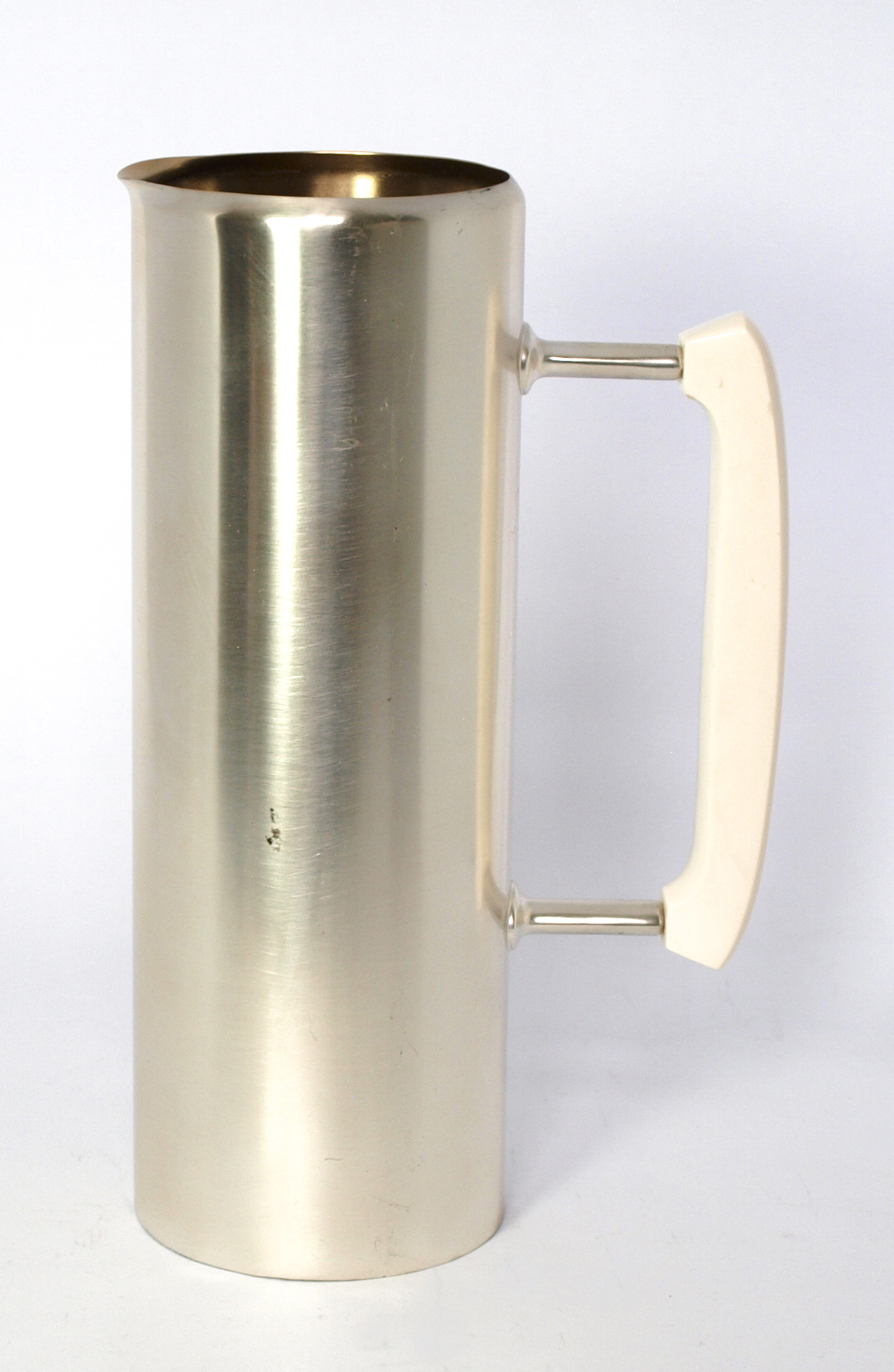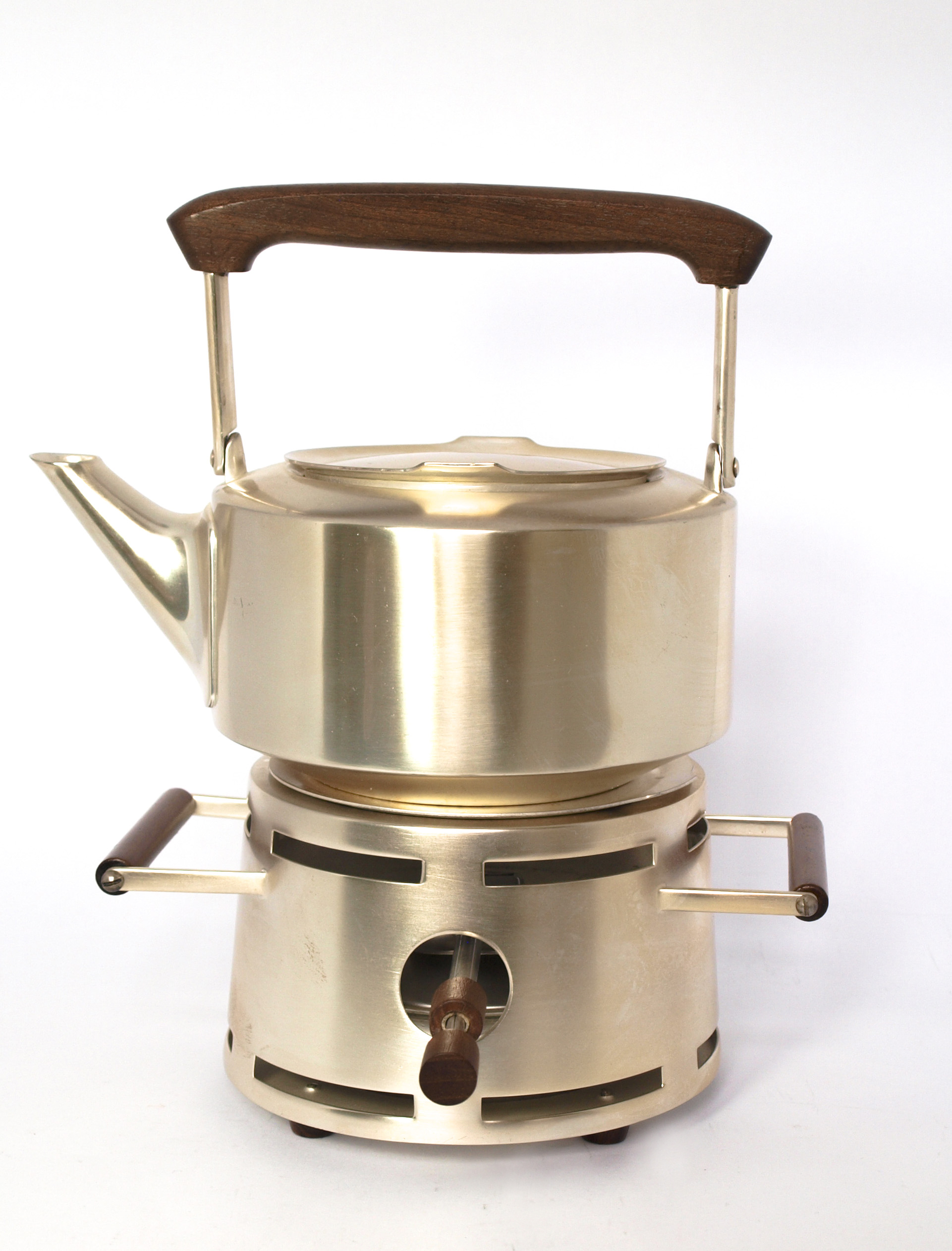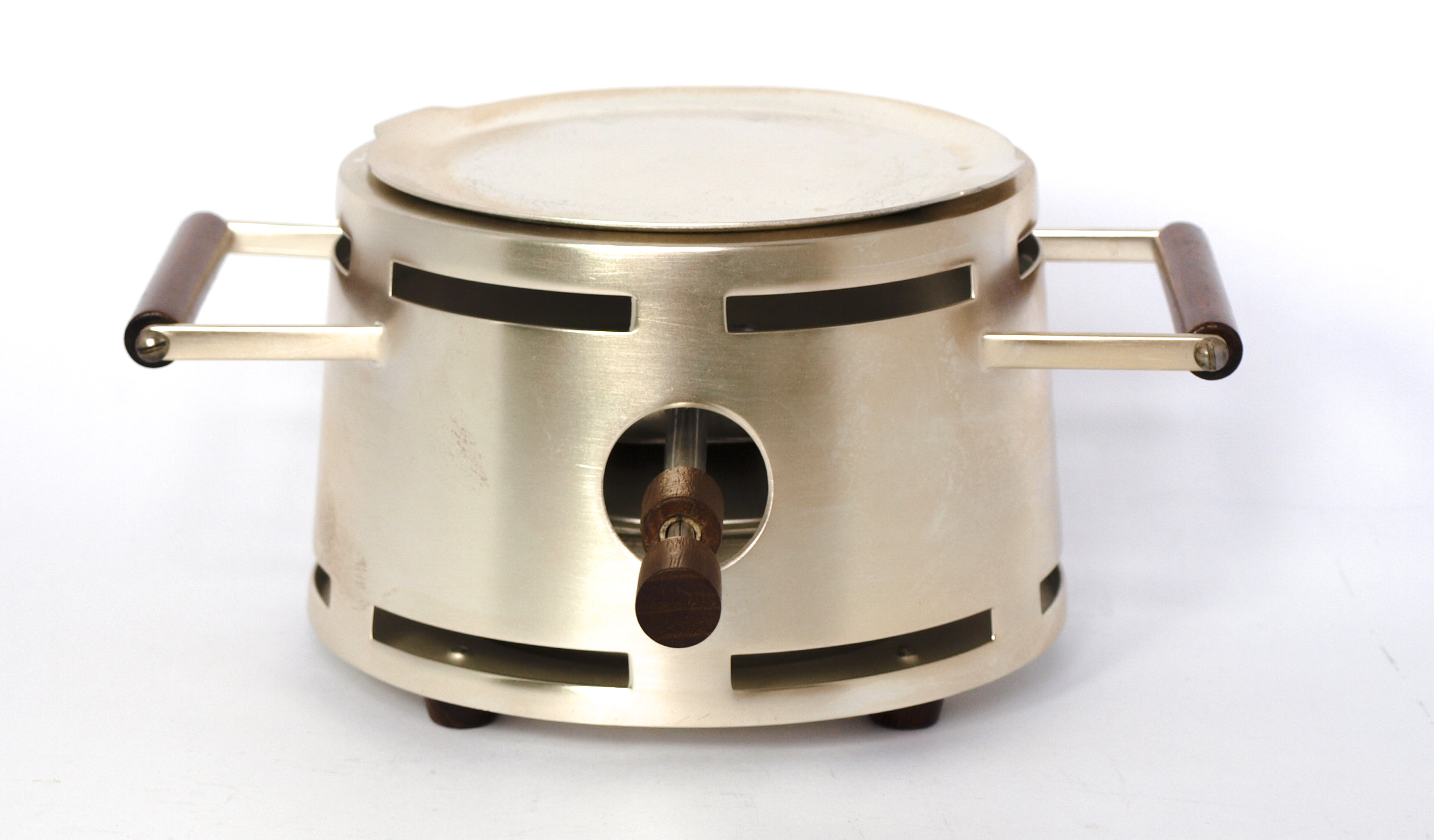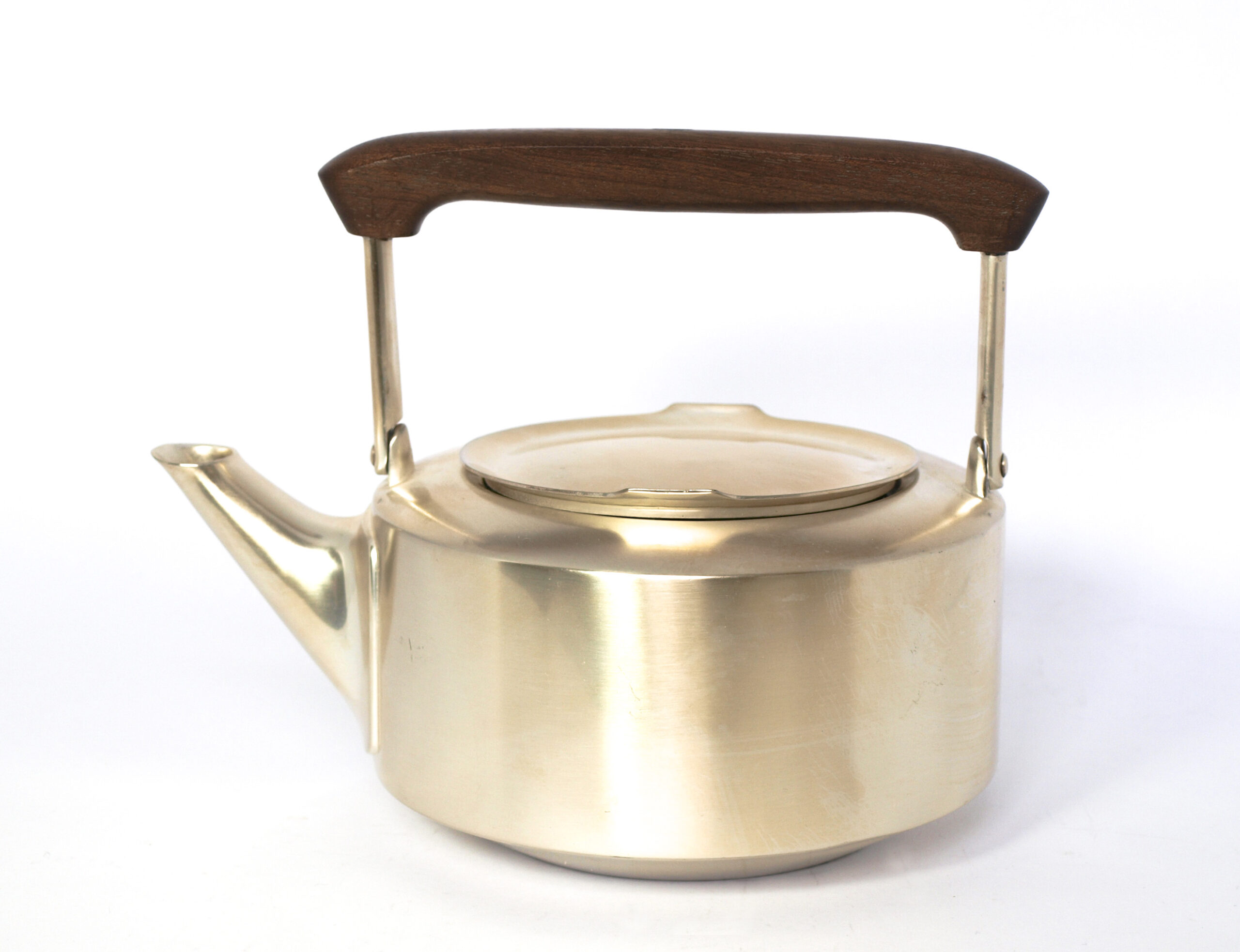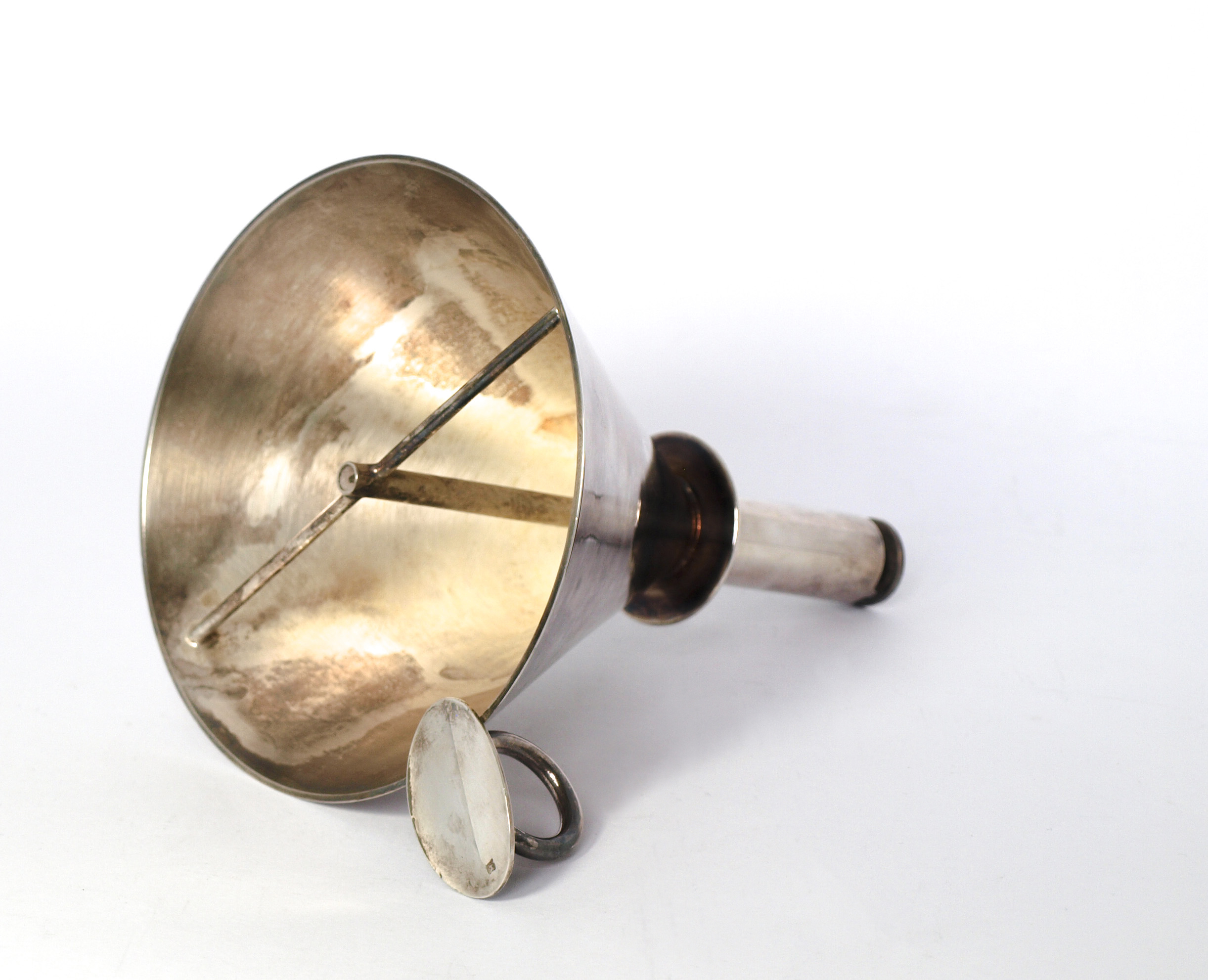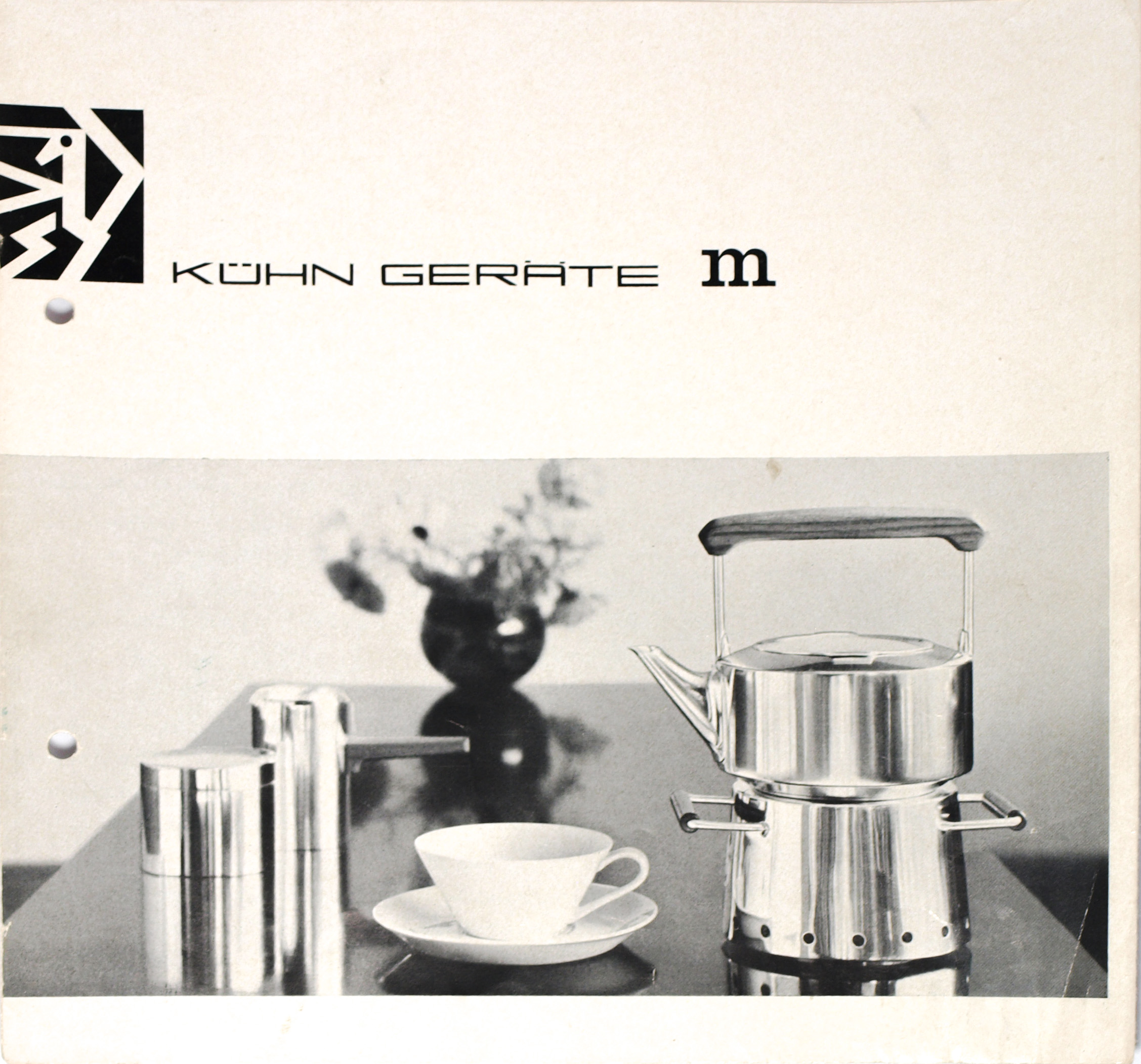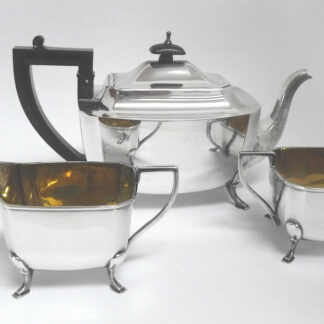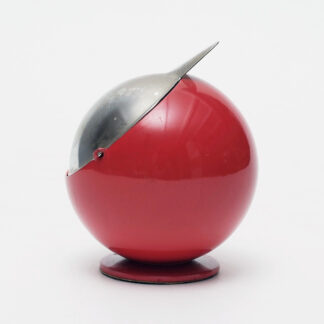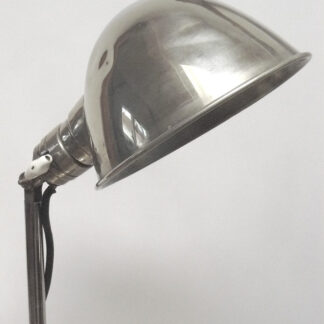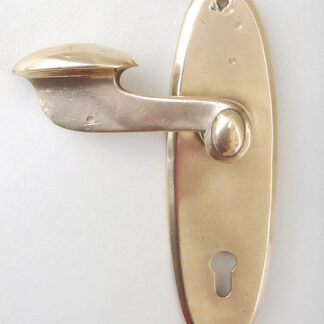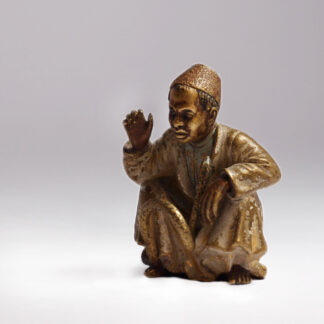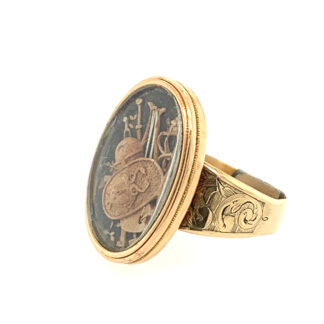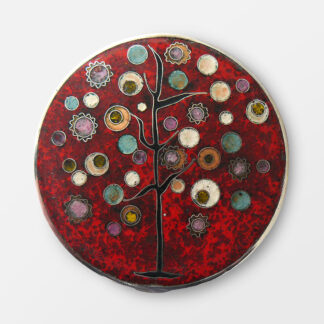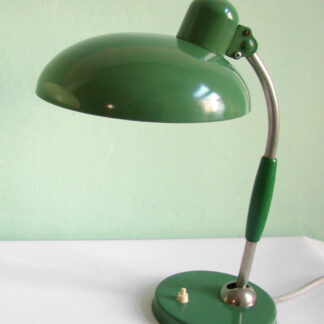Description
This seven-piece set of a heater, a vaporizing burner, a water kettle, a tea and a mocha pot, a cream jug and a strainer comprises of the original prototypes, which Karl Dittert modelled for his appliance series “m” for the silverware factory Gebrüder Kühn in Schwäbisch Gmünd, Germany, in 1960. Every piece directly comes from the hand of its designer meaning the set features Karl Dittert’s first models which are, in fact, unique.
Karl Dittert (born 1915 in Mährisch Trübau/Austria-Hungary, died 2013) is one of the most significant industrial designers in post-war Germany whose designs directly bear upon Bauhaus references. The idea of modular design already was postulated by Walter Gropius in the 1920s, yet Dittert was the first designer to consequently execute Gropius’ concept combining it with aesthetic industrial design at the highest stage. His work targeted an audience who, ideally, lived in Le Corbusier’s Unité d’habitation, stylishly furnished with Herbert Hirche’s modular furniture and the latest electronic appliances by Braun, while dining from dish- and silverware by Heinrich Löffelhardt – in short: a setting in which Dittert’s service fitted in pleasingly and was the center of attention to every afternoon coffee table. His products were and are costly, but still a rewarding investment!
Dittert’s influence by Bauhaus ideas traces back to his apprenticeship with Hans Warnecke at the State Academy of Fine Arts in Stuttgart and at the HfG in Schwäbisch Gmünd, whose professorship Dittert took over in 1949. Since 1958 he systematically extended Wilhelm Braun-Feldwegs position at Berlin State School of Fine Arts by laying the foundation of the latter study program in industrial design. As a designer of everyday objects, especially of tableware and office furniture, Dittert’s name is still synonymous with sophisticated and timeless industrial design.
The vessels of his appliance series “m” are a supreme example of Dittert’s work as modern industrial designer. Here, he proved himself a rigorous systematist, while not giving in to compulsive formalism. He wrote: “I design necessary products, not unnecessary ones: They have to be economically manufacturable and should be used with great pleasure. The form is original, yet not fashionable. This way, they will be used longer.” Accordingly, the vessels of this service prove to be identical to economize production. Desired variation is ensued by handles or spouts. These prototypes prove that Dittert integrated different materials like bone and different woods to achieve a greater variety. Another difference to the serial production that would follow is the surface design, which is satin brushed, not buffed. It partly features gold plating inside the vessels.
Dittert’s service plays a key part in the history of modern industrial design. The German Postal Service placed Dittert’s appliance series “m” onto their new stamp series “Design in Germany” for 2021 together with designs by Peter Behrens, Marcel Breuer, Wilhelm Wagenfeld, and Marianne Brandt.
Along with the set comes the original sales brochure from 1960.

